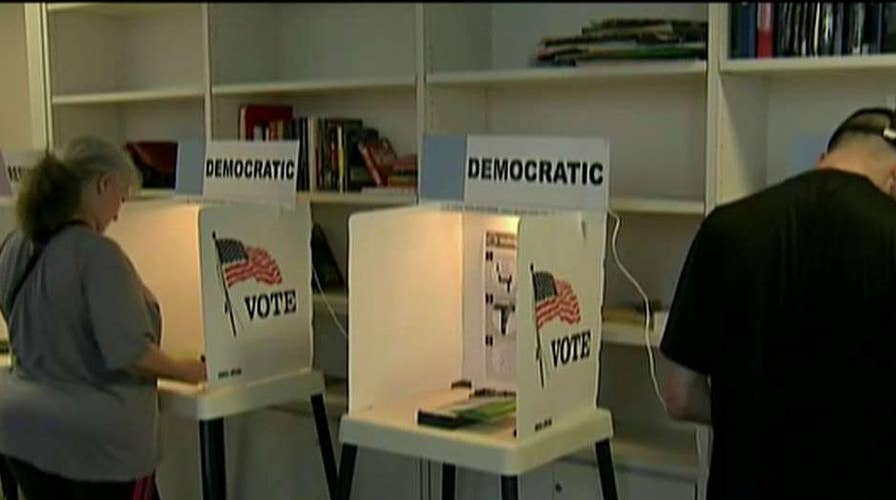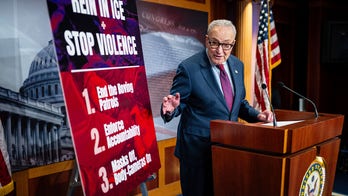A U.S. appeals court on Tuesday ruled that a challenge to President Trump’s voter fraud panel does not have the legal standing to move forward.
In a U.S. Court of Appeals for the District of Columbia circuit opinion, Judge Stephen Williams did not rule on the merits of the case but instead said the plaintiff -- the Electronic Privacy Information Center (EPIC) -- is “not a voter” and therefore has no legal standing to sue for alleged violations of the 2002 E-Government Act.
EPIC “has suffered no informational or organizational injury from the defendants’ attempt to collect voter data without first producing an assessment,” Williams wrote.
The privacy-rights group had sought to sue Trump’s controversial “election integrity” commission, alleging the panel violated federal law by gathering massive amounts of information on the country’s registered voters.
Several privacy watchdogs have spoken out against the panel and have questioned whether the information gathered would be kept safe from hackers. They also raised concerns that the data could be used for nefarious political purposes like voter suppression.
The Trump administration argues that collecting large quantities of voter data is legal because the panel is not a federal agency and doesn’t have to do an “impact assessment” to show whether it violates privacy rights or not.
EPIC countered that because the panel operates as part of the General Services Administration – a federal agency – it must prove it’s not infringing on the privacy rights of millions of Americans before it can act.
The voter fraud commission is led by Vice President Pence and Kansas Secretary of State Kris Kobach. It has asked all 50 states and D.C. to hand over publicly available data from state voter rolls and sensitive information about voters.
Virginia, Kentucky and California are among states that have said they won’t comply.
The commission also has been a frequent target of civil and voting-rights groups which argue there is no definitive evidence of widespread voter fraud in the United States.
Kobach disagrees, and has described the fears about voter suppression as baffling.













































